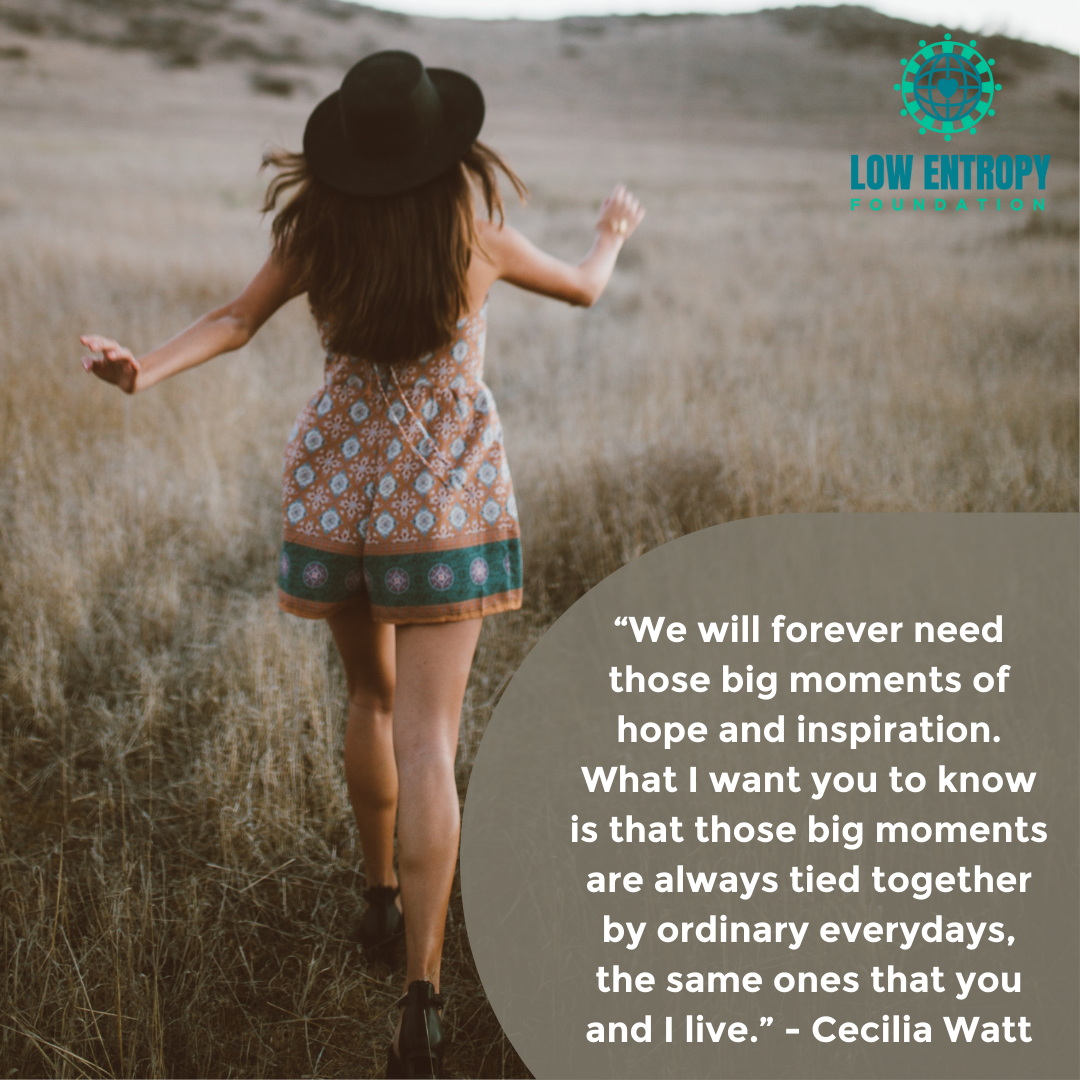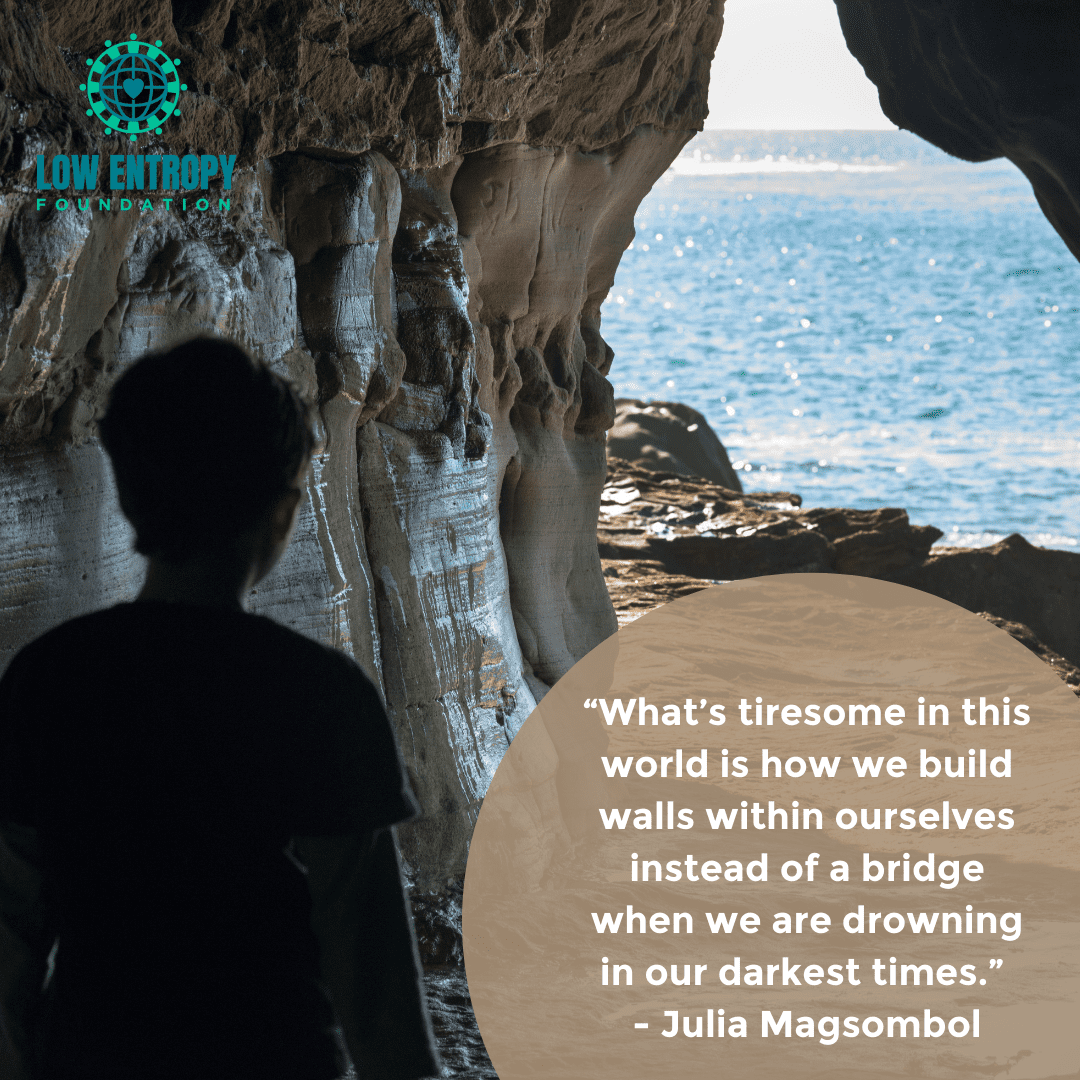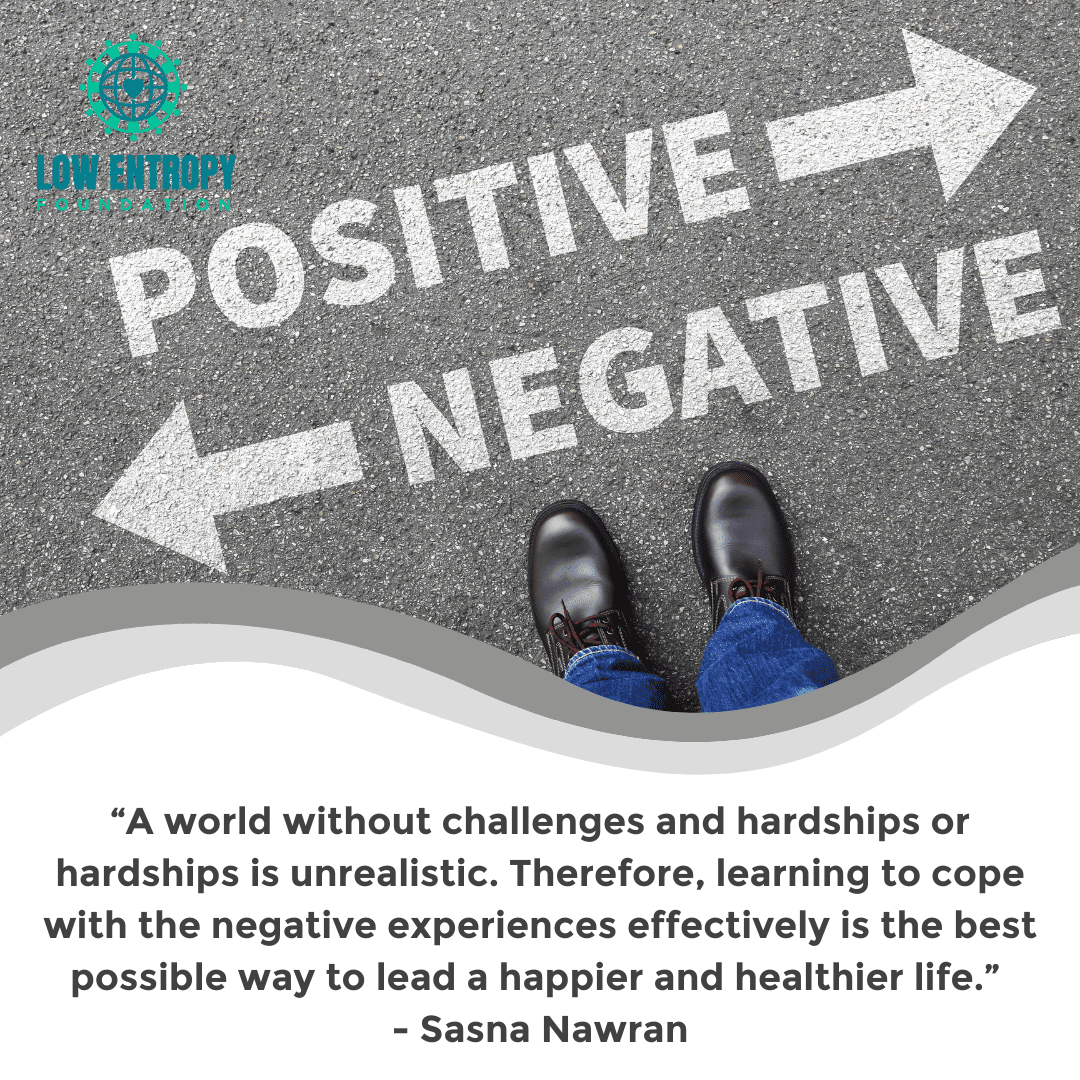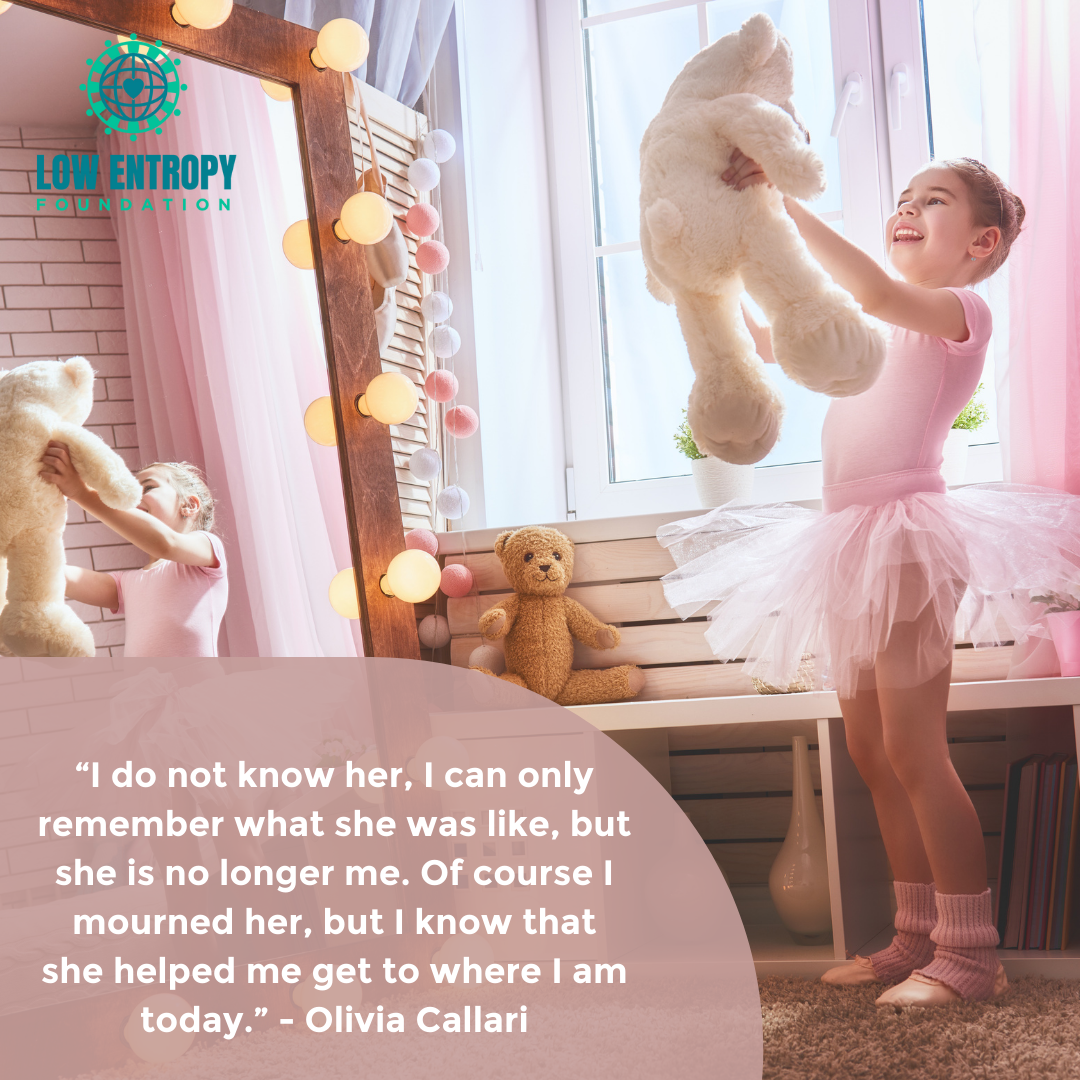Cecilia Watt (she/her/hers), Low Entropy Volunteer Writer
It’s easy to find hope and inspiration in big things, isn’t it? This year, Canada watched snowboarder Max Parrot win gold and bronze at the Olympics, and while that was inspiring in itself, the inspiration was increased tenfold by the fact that he accomplished this only a few years after being diagnosed with cancer. Big moments of inspiration like this are wonderful and necessary for the human spirit, but they often make our own lives feel small, ordinary and lacking. Add in the listlessness that came with the pandemic and you can’t help but ask yourself, “What could be so inspiring about my normal, everyday life?” I think that you can find hope in the goodness in the world and the inspiration to be a part of it as a part of an “ordinary” everyday life. If the past few years have taught me anything, it’s that the chance to live ordinary things is the most extraordinary chance we’re given.
In 2020, I graduated university during the first wave of the pandemic. There was no ceremony at school, so my friends and I made our own before we had to separate in March. With paper diplomas, graduation music played on YouTube, dresses, heels and four years’ worth of tears, we went our separate ways, not knowing when we’d see each other again. I had lost my dad three months before, and would lose my grandma to COVID-19 one month after the day of our goodbye ceremony. The grief of my loved ones, my former life and who I used to be consumed me, and after months of numbness, I decided to be consumed by something else: a job at a domestic violence shelter.
In the year I worked there I found inspiration from people living everyday lives, in spite of experiencing the worst the world had to offer. I laughed — really laughed — with the women I met, so hard that it hurt my stomach. They teased me when I (allegedly) couldn’t whisk an egg properly in the kitchen. We celebrated every holiday together, and we celebrated not having the energy to participate in holidays together too. I helped a client beat a level of Fishdom every day when I had a minute, and another client taught me about Marky Mark and the Funky Bunch (who knew he and Mark Wahlberg were one and the same?). One taught me about diamond art, and another gave me her colouring pages when she was done with them, as a gift. They brought me back to life simply by allowing me to be a part of their ordinary lives. Of course, there were many moments of pain and hopelessness. Those moments reinforced to me how lucky we were to live the good ones together.
I went sledding with the children of the shelter one snowy day, and I can safely say that it was one of the best days of all our lives. These kids had lived through the unspeakable, and all of us staff who went with them were weighed down by that knowledge and our own lives. But that day? That day, they just got to be kids — and so did we. We crashed in the snow, flew off our sleds and raced each other, and not a single one of us wanted to leave. Another ordinary day, another extraordinary moment.
I’ve been told by family, friends, coworkers and acquaintances that the way I handled my grief was an inspiration to them. I’m still not sure how I feel about that: all I did was my best, and it usually felt like my worst. The reason I could do my best is because of the peace and hope I found in the daily things that we’re taught aren’t noteworthy.
In the fall of 2021 I moved to Vancouver, reuniting with three of those friends with whom I had “graduated” on their rickety, student house staircase. I decided it was time to leave my hometown and try something new, before going back into the grad school fray the following year. Cue immediate existential crisis. I wasn’t in school, and was now unemployed in a new city, taking a break from the social service work that had made me feel so useful. It left me in that strange limbo of grief where you feel like people think you should be doing better than you actually are. For the first time in years, my life was only made of little things, with no big, earth-shattering ones in sight. I felt useless and so deeply ordinary, like a secondary character in my own life. Then, I found my new favourite café. I made very poorly designed clay mugs with my roommates at an art studio. I found a therapist I really connected with and kept in touch with my friends. I kept falling more in love with the best person I’ve ever met, every day. We made paper snowflakes to decorate for Christmas and watched The Bachelorette every week. I continued to contribute to the lives of others and my own, and I remembered that the pause we take between words is just as important as what we’re saying.
We will forever need those big moments of hope and inspiration. What I want you to know is that those big moments are always tied together by ordinary everydays, the same ones that you and I live. Max Parrot’s medal is made even more golden by all the little moments of hope that I’m sure he found in his ordinary days, the ones that gave him the strength to deliver that same hope back to us. So go about your ordinary day in any way that brings you peace, and remember how special that is. After all, isn’t finding a moment of peace in a world so loud and blinding the most extraordinary thing of all?
—
Cecilia Watt is a recent university graduate taking a few years off before grad school to focus on all the little joys in life, such as chai lattes, good books and listening to music while going for walks.










